#water resource management
Text
#The Importance of Water#the importance of water purification#what is the importance of water#Water conservation#Water resource management#Global Water Partnership (GWP)#Water Action Hub
3 notes
·
View notes
Text
Exploring the Diverse Techniques of River Erosion Works
Introduction
Rivers, with their ever-flowing currents, have the incredible power to shape the landscape over time. However, this natural force can sometimes pose a threat to human settlements, infrastructure, and agricultural lands. To mitigate the adverse effects of river erosion, various engineering techniques have been developed over the years. In this article, we will delve into the different…
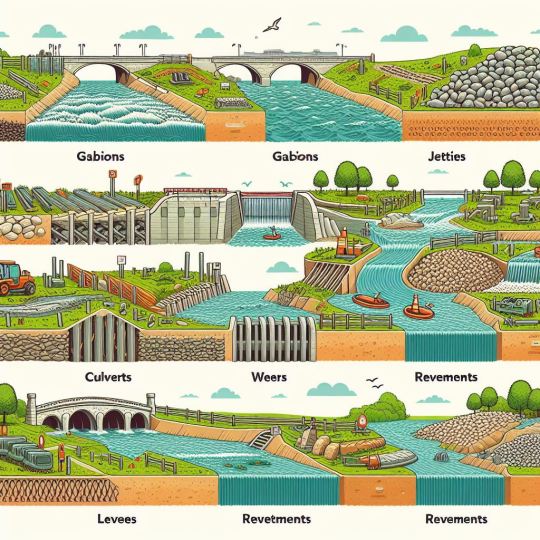
View On WordPress
#bank protection#barrages#bioengineering#channelization#dams#ecological conservation#environmental sustainability#erosion control#groynes#realignment#revetments#riprap#River erosion#river training#sediment control#sediment control structures#spurs#sustainable engineering#vegetative bank protection#water resource management
0 notes
Text
Thematic Report to the 79th session of the United Nations General Assembly “Water and food nexus: a human rights approach to water management in food systems”.
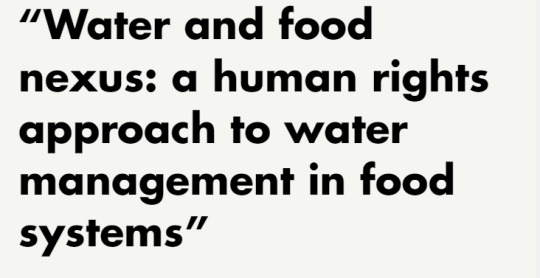
The Special Rapporteur on the human rights to safe drinking water and sanitation, Pedro Arrojo Agudo, is inviting inputs from States and other stakeholders to inform his thematic report on “Water and food nexus: a human rights approach to water management in food systems”. The report will be presented at the United Nations General Assembly's 79th session in October 2024.
The Special Rapporteur on the human rights to safe drinking water and sanitation understands that the dominant systems of large-scale food production and comercialication are harming the human rights to safe drinking water and sanitation worldwide. For the Special Rapporteur, under the argument of producing more and more food for a growing world population, the right to food is often used as an argument to justify unsustainable water management, overusing water sources and affecting aquatic systems, resulting in contamination or scarcity of water needed for human use. As reflected in Special Rapporteur´s report A/HRC/54/32 of 2023, guaranteeing the human right to water for the most impoverished requires restoring the good state of the aquatic ecosystems on which they depend for their water supply. In addition, over-exploitation and pollution of aquatic ecosystems often undermine small-scale food production for self-consumption in impoverished rural communities.
In this connection, the Special Rapporteur would like to call member states, non-state actors, civil society, academia, indigenous peoples, individuals, and other relevant stakeholders to send their contributions and experiences related to the sustainability of aquatic ecosystems and freshwater sources and the systems used to produced food. The Special Rapporteur would appreciate receiving inputs on the interlinkages between both rights and the positive and negative experiences on sustainable (or unsustainable) use of water sources by food systems, including court rulings at global, regional, national, and local levels.
The Special Rapporteur wishes to thank States, indigenous peoples, civil society organisations, academic institutions, businesses, international organisations, individuals, and other stakeholders for their continued engagement with this mandate.
Key information sought: To facilitate the reception of inputs, the Special Rapporteur prepared a list of key information which he considers essential for the report. The list could be answered entirely or partially according to the expertise and experience of those actors willing to contribute to the Report. List of topics: English | Français | Español
How inputs will be used
All submissions will be published on the website of the mandate. Non-state actors could request the confidentiality of the submission.
Next Steps
Please send your contributions via email, indicating “Input Water and Food Nexus” in the email subject line. Your contribution should be sent by no later than 15 March 2024
Email address: [email protected] AND to [email protected].
Email subject line: Input water and food nexus
Word limit: 2500 words
File formats: Word, PDF
Accepted languages: English, Spanish, French
#Special Rapporteur on the rights to water and sanitation#sdg6#water resources#water governance#human rights approach#call for imputs#safe drinking water#OHCHR#Water and Food Nexus#UNGA79#water management#water goals#member states#non-state actors#civil society#academia#indigenous peoples#individuals#stakeholders
16 notes
·
View notes
Text
even does know what plants are though. (as per doctor who canon, the way ships manage to keep oxygen on long voyages is via having literal forests in them. now, nothing to that extent, obviously, they weren’t that well-equipped or funded. but there’s definitely plants In There, probably relegated to a much more ordered existence, think the difference between a natural forest and one grown for logging.) at least they have that. they have seen plants. not often, but they have.
i don’t think they really understand plants beyond their functions (to eat, keep everyone breathing, etc.) whereas with natural beauties and animals and other such things that even has no experience with and can wonder over, they can’t really. do that with plants. the ability to admire a flower rather than immediately think of it in terms of resources lost and gained in its creation is a skill they have to learn.
but you know. at least they have seen them. that’s something. that’s slightly less depressing, right.
#even also would not know how to take care of plants. at most they know that plants require water. maybe.#their job was reconstituting the ship’s waste and recovering as much as they could and safely disposing of the rest#even doesn’t know to water plants. thank god the doctor doesn’t keep houseplants. they would die.#but i just think this would be an interesting contrast.#how easily even is taken in by things they’ve never seen before. and the few things they consider mundane. they have trouble looking at#with any emotion but Critically Thinking About How This Contributes To Us#the ever-present conflict of everything they learned to function as a part of a ship that was. not prepared. and responded to its lack of#preparedness by dehumanizing everyone on it and exploiting them until their death all for a future they couldn’t even be sure was there.#and the fact that they are delighted by the universe. they want to love it. they want to see it as beautiful. they want to escape.#and. what that means is that even thinks of flowers as wastes of space. long after they’ve gotten over a lot of their other ins#instincts about resource management and wasting it and such. they never really like flowers.#and that makes it kind of funny right? that it’s rose they have a crush on.#to them: rose is essential. so important to the doctor and so important - in their eyes - to the whole universe because of it.#idk where im going with this but its certainly a thing now#dw oc
3 notes
·
View notes
Text
"and then he drank the water from the river / sink in the abandoned house / rain water ..."
listen, i know it's just fanfics. but I keep reading this in fan works and worry that some might actually think it's safe to drink water from questionable sources.
Should you ever be in an outdoor situation where you don't have your usual water access - don't drink water from whatever-seems-fine-source. It can make you really sick. Please rely on locally approved sources of water or filter / test yourself before slurping down liquid cholera.
#there are good reasons why humanity uses large amounts of resources on water access and waste management#rain water is not naturally safe to consume#eroded pipes or inactive water filtering systems can lead to poisoning#running waters tend to be safer but they too can have dangerous bacteria or chemical pollution in it#just be careful okay#grimmwriting#water safety#drinking water#public health
8 notes
·
View notes
Text
Unveiling the Secrets of Life Below Water: Goal 14 for a Sustainable Future
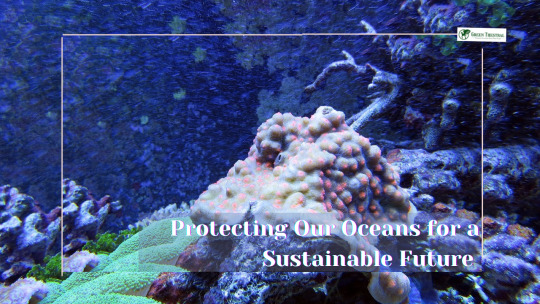
In our journey towards achieving a sustainable future, Goal 14 of the United Nations' Sustainable Development Goals (SDGs) plays a pivotal role. Life Below Water, as it is commonly referred to, focuses on the preservation and sustainable use of oceans, seas, and marine resources. With this goal, the international community aims to safeguard marine ecosystems, mitigate the impacts of human activities, and promote sustainable livelihoods for coastal communities. This article delves into the significance of Goal 14, explores the challenges faced, and highlights the initiatives that can help us ensure a healthier and more vibrant life below water.
Understanding the Importance of Goal 14
The Earth's oceans are vast and cover more than 70% of the planet's surface. They are teeming with life and harbor a remarkable diversity of species and ecosystems. From the mesmerizing coral reefs to the mysterious depths of the abyss, the oceans are a treasure trove of biodiversity, supporting millions of species, including plants, animals, and microorganisms.
Beyond their ecological significance, the oceans play a crucial role in regulating the Earth's climate. They act as a massive heat sink, absorbing a significant amount of the sun's energy and distributing it across the planet. Additionally, oceans play a vital role in the water cycle, facilitating the evaporation of water, which then falls as precipitation and sustains terrestrial ecosystems.
The oceans are not only important for the environment but also for human societies. They provide sustenance to millions of people around the world. Fishing, both for subsistence and commercial purposes, is a primary source of livelihood for coastal communities. The oceans also support economic activities such as tourism, shipping, and offshore industries, contributing significantly to global economies.
However, the delicate balance of marine ecosystems is under threat due to various human activities. Overfishing, driven by unsustainable practices and the demand for seafood, has led to the depletion of fish stocks worldwide. Large-scale industrial fishing, with destructive methods such as bottom trawling, threatens not only the targeted species but also the entire marine food web.
Marine pollution is another significant challenge faced by the oceans. Pollution from land-based sources, including plastic waste, chemicals, oil spills, and agricultural runoff, finds its way into the marine environment, causing severe harm to marine life and ecosystems. The accumulation of plastic debris in the oceans has reached alarming levels, forming giant garbage patches and causing entanglement and ingestion by marine organisms.
Habitat destruction and degradation are also taking a toll on marine ecosystems. Destructive practices such as coral reef destruction, coastal development, and the destruction of mangroves and seagrass beds result in the loss of critical habitats and the disruption of delicate ecological relationships. These habitats serve as nurseries and breeding grounds for many species, and their loss has far-reaching consequences for marine biodiversity.
Furthermore, climate change poses one of the most significant threats to life below water. Rising sea temperatures, ocean acidification, and sea-level rise are already impacting marine ecosystems. Corals, which are vital for the survival of countless marine species, are particularly vulnerable to rising temperatures and increased ocean acidity, leading to coral bleaching events and the degradation of coral reefs.
In recognition of the urgent need to protect and sustainably manage marine resources, Goal 14 of the United Nations' Sustainable Development Goals (SDGs) was established. Also known as Life Below Water, this goal aims to ensure the conservation and sustainable use of the oceans, seas, and marine resources for present and future generations.
Goal 14 encompasses various targets and indicators to guide efforts towards sustainable ocean management. One of the key focuses is the protection and restoration of coral reefs, which are among the most diverse and valuable ecosystems on Earth. Coral reefs provide habitat for numerous species, protect coastlines from erosion, and support vibrant tourism industries. By implementing measures to reduce coral bleaching, enhance reef resilience, and combat destructive practices, Goal 14 seeks to safeguard these vital ecosystems.
Another critical aspect of Goal 14 is the reduction of marine pollution. It calls for the prevention and significant reduction of marine debris, particularly plastic waste. Efforts are being made to promote better waste management systems, recycling and reusing plastics, and raising awareness about the detrimental effects of single-use plastics. Innovative technologies for ocean cleanup are also being developed to tackle existing pollution.
To address the issue of overfishing, Goal 14 emphasizes the need to restore fish stocks to sustainable levels. This involves implementing science-based management plans, combating illegal, unreported, and unregulated fishing, and promoting responsible fishing practices. Creating marine protected areas and adopting ecosystem-based management approaches can help protect critical habitats and ensure the long-term viability of fisheries.
Furthermore, Goal 14 acknowledges the urgent need to address ocean acidification, which poses a grave risk to marine organisms. By reducing carbon dioxide emissions and taking steps to enhance the resilience of marine ecosystems, such as protecting mangroves and seagrass beds, this goal aims to mitigate the impacts of ocean acidification and ensure the survival of vulnerable species.
Achieving Goal 14 requires a collaborative effort from governments, businesses, civil society organizations, and individuals worldwide. International cooperation is crucial to strengthen governance frameworks, regulate resource exploitation, combat illegal fishing, and promote sustainable practices. By taking collective action and embracing sustainable approaches, we can secure a healthier and more vibrant future for life below water.
Challenges and Threats to Life Below Water
The life below water faces a multitude of challenges that require immediate attention and concerted efforts. Overfishing, driven by unsustainable practices and illegal, unreported, and unregulated fishing, has led to a decline in fish stocks worldwide. The loss of biodiversity affects not only marine ecosystems but also the communities that depend on them for food security and economic opportunities.
Marine pollution poses another significant threat. Plastic waste, chemicals, oil spills, and other pollutants contaminate the oceans, harming marine life and ecosystems. The accumulation of plastic debris, in particular, has gained global attention due to its devastating impact on marine organisms and the potential consequences for human health through the food chain.
Ocean acidification, caused by the absorption of excess carbon dioxide from the atmosphere, poses a grave risk to marine organisms such as corals, shellfish, and plankton. Acidic waters can hinder the growth and survival of these organisms, disrupting the entire marine food web and impacting the livelihoods of coastal communities.
Initiatives and Solutions for a Sustainable Life Below Water
Achieving Goal 14 requires a comprehensive approach involving governments, businesses, civil society, and individuals. Several initiatives and solutions have emerged to address the challenges faced by life below water:
Sustainable Fisheries Management: Implementing science-based management plans, promoting responsible fishing practices, and combating illegal fishing are crucial steps towards replenishing fish stocks and ensuring the long-term sustainability of fisheries. Tools like marine protected areas and ecosystem-based management help preserve critical habitats and protect biodiversity.
Marine Pollution Prevention: Reducing plastic pollution and other sources of marine debris is vital. This can be achieved through improved waste management systems, recycling and reusing plastics, and raising awareness about the consequences of single-use plastics. Additionally, promoting the use of biodegradable alternatives and supporting innovative technologies for ocean cleanup can help mitigate the impact of existing pollution.
Climate Change Mitigation and Adaptation: Addressing climate change is fundamental to preserving life below water. Transitioning to renewable energy sources, reducing greenhouse gas emissions, and promoting sustainable coastal development are essential steps in mitigating the impacts of climate change on marine ecosystems. Additionally, enhancing the resilience of coastal communities through measures such as mangrove restoration, coastal protection, and sustainable tourism can aid adaptation efforts.
International Cooperation and Governance: Collaboration among nations is crucial for the effective implementation of Goal 14. Strengthening international frameworks, such as the United Nations Convention on the Law of the Sea (UNCLOS), and promoting regional cooperation can help combat illegal fishing, regulate resource exploitation, and ensure the sustainable use of marine resources.
Conclusion
Preserving life below water is not only crucial for the health of our oceans but also for the overall well-being of our planet. Goal 14 provides a roadmap for sustainable ocean management, aiming to conserve marine biodiversity, mitigate pollution, and promote the sustainable use of marine resources. By taking action at individual, local, and global levels, we can make a significant difference in ensuring a healthier and more vibrant future for life below water. Let us join hands and work together to safeguard the oceans for generations to come.
#Sustainable management of marine resources#Conserving marine biodiversity#Protecting coral reefs and marine ecosystems#Sustainable fishing practices for life below water#Reducing marine pollution for a healthier ocean#Restoring fish stocks for sustainable fisheries#Addressing the threats of overfishing#Combating illegal fishing activities#Preserving the delicate balance of marine ecosystems#Tackling plastic pollution in the oceans#Solutions for ocean acidification#Climate change impact on life below water#Sustainable tourism and the oceans#Promoting responsible coastal development#Achieving United Nations' Goal 14 for a sustainable future#Enhancing resilience of coastal communities#Sustainable livelihoods for coastal populations#Importance of ocean conservation and sustainability#Preserving marine habitats and species diversity#Ecosystem-based management for marine resources#Strengthening international cooperation for Goal 14#Achieving sustainable development through Goal 14#Role of marine protected areas in conservation#Long-term viability of marine ecosystems#Promoting sustainable shipping practices#Economic benefits of sustainable ocean management#Balancing human activities with marine conservation#The significance of Goal 14 in the SDGs#Ensuring a vibrant future for life below water#Global initiatives for the protection of marine environments
2 notes
·
View notes
Text
From C3EP49 about the skyship, but I think it'll help make sense of Laerryn's work since most of it was a little vague.
You also learn more about brumestone with those high rolls, too. → Brumestone is naturally buoyant within. When it is excavated or pulled from the ground of Exandria, it just lifts and stays where it is. It's easily pushed, and seems to float on its own, and it's through charges of arcane energy that its buoyancy is adjusted, and that's how the ship works. Each of these controls controls these very, very faint runes that are marked along the deck of the ship, either underneath or on top of it, and you can see where they all connect to the different brumestone devices, and so with each different point of control, it raises the amount of power that's going to them. It doesn't take a lot.
Obviously, she doesn't just work with keeping the city afloat but distributing all that arcane energy across the city for the different systems of the Court of Working --- so we'd have a head of sanitation and water management, the different transportation methods, communication crystals, automatons, etc --- and vouching for infrastructure projects in regards to arcane requirements.
Also, evidently, runes specialist. If a major arcane device isn't working as it probably should, she's the one to inspect its runic pattern and patch it.
Not to mention denfences and others.
#this is so redundant to say but she's so significant to that city#(also whoever keeps the water coming and going. and food supply)#she. almost solely. manages the city's most precious resource#especially considering it's not just a regular city. it's a mageocracy#(talk about power couple. my dudes)#laerynn coramar seelie#avalir#cr stuff
3 notes
·
View notes
Text
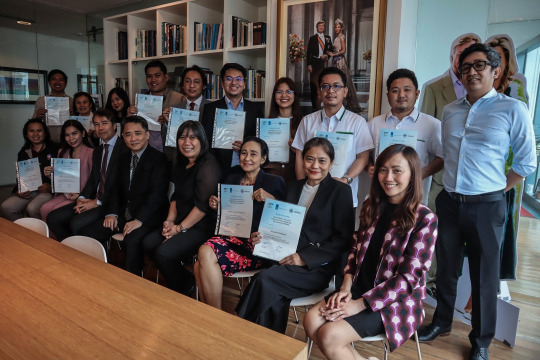

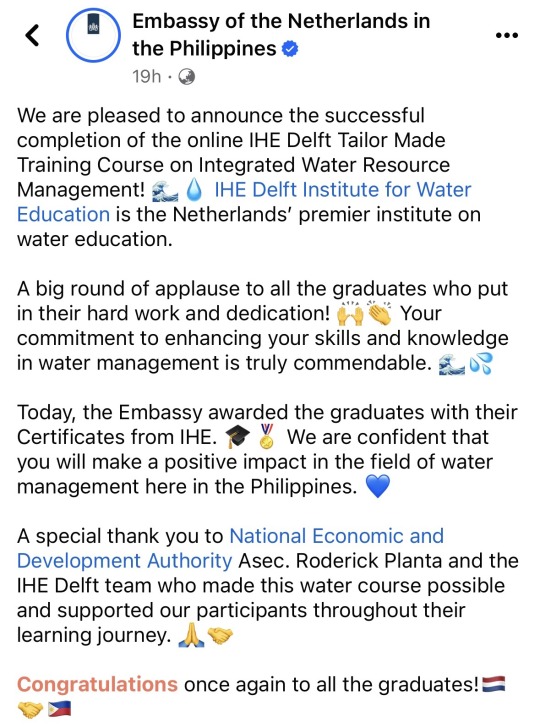
© Embassy of the Kingdom of the Netherlands in the Philippines
IHE Delft Certified
This was from the graduation/certificate awarding of the Tailor Made Training on Integrated Water Resources Management (IWRM) at the IHE Delft Institute for Water Education's e-Campus from 28 February 2023 - 30 March 2023.
I don’t usually rave about short course trainings, let alone an online course... But training with the IHE Delft Institute for Water Education (the largest international graduate water education in the world) is a low-key dream come true for me. I really never believed that I was going to experience this… Thank you Taxpayers and the government of the Netherlands for this. Hopefully, we get to this face-to-face in the Netherlands someday. Haha.
#Training#Integrated Water Resources Management#IWRM#Government#IHE Delft Institute for Water Education#Kingdom of the Netherlands#Water#Dutch#Embassy#Makati City#Philippines
1 note
·
View note
Text
8th Meeting, 15th Session of the Expert Group on Resource Management.
Session 4: Decision Support – 2
Chair: Karen Hanghøj
Agenda item 7.2: Development and deployment of UNFC - Groundwater Resources Working Group Update (ECE/ENERGY/GE.3/2024/7)
Peter van der Keur, Chair, Groundwater Resources Working Group and Geological Survey of Denmark and Greenland (GEUS)
UNFC Application to Renewable Energy
Gioia Falcone, Co-Chair, Renewable Energy Working Group
Recycling construction materials
Julia Stegemann, Professor of Environmental Engineering, University College London, UK
Sand and construction materials
Tom Bide, Senior Scientific Officer, British Geological Survey
AMREC-PARC Case study
Bob Felix Occiti, Senior Policy Officer - Research Oil and Gas Program, African Energy Commission
Joint UNFC – PRMS Financial Reporting Template
Victor Babashev, Chair, Petroleum Working Group and Ignatiy Volnov, Regional Director Russia and Caspian, Society of Petroleum Engineers
Discussions Agenda item 6: Responsible resource governance: Development and deployment of UNRMS - Critical Minerals Markets Information System (CriMMIS) Concept
Simon Strickland, Senior Adviser on Strategy, Cabinet Office, UK
Transparency in Critical Raw Material Value Chains
Elisabeth Tuerk, Director, Economic Cooperation and Trade Division, UNECE
Circular Metals
Brian Cantor, Director, UK ICE-SRM for Circular Materials, BCAST, Brunel University, UK
UNRMS: Considerations for Steel Recycling
Cameron Pleydell-Pearce, Director, SUSTAIN Steel Hub, Swansea University, UK
Ukraine: Resource management challenges and opportunities
Roman Opimakh, Director General, Ukrainian Geological Survey
Activities of the UNECE Hydrogen Task Force
Branko Milicevic, UNECE
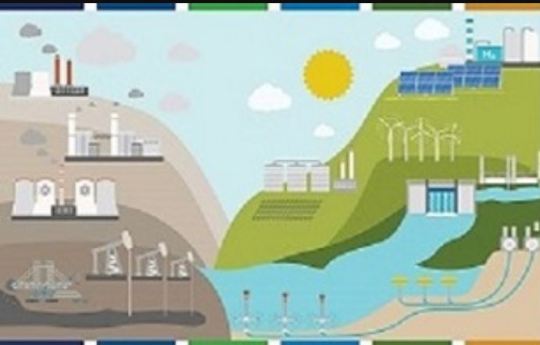
#resource management#expertgroup#extractiveindustries#egrm15#United Nations Resource Management System (UNRMS)#United Nations Framework Classification for Resources (UNFC)#Assuring sustainability in resource management#Expert Group on Resource Management#industrial water#mining wastes#sustainable water management#sustainable energy
0 notes
Text
Jamaica: Water Bottles and Construction
In countries filled with structures made out of brick and wood it is hard to believe that they can be made with anything else. Buildings are supposed to be sturdy and able to withstand anything from a clear day to severe thunderstorms.
There’s a reason why kings built their castles out of stone, and why the two pigs who built their houses out of straw and sticks had their houses destroyed. It’s…
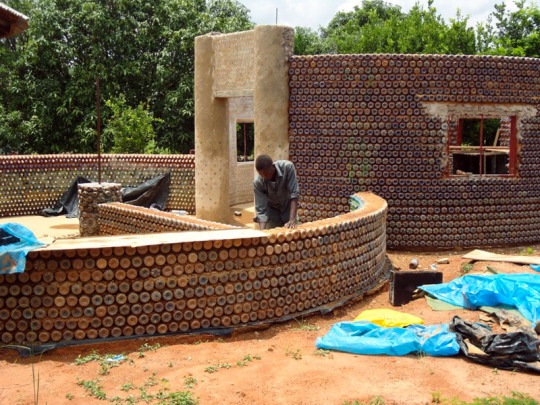
View On WordPress
#Affordable housing#alternative materials#building#building techniques#climate resilience#community development#community empowerment#Construction#creative solutions#disaster resilience#eco-friendly#environmental impact#green building#green technology#houses#infrastructure#innovation#Jamaica#local initiatives#plastic bottles#poverty alleviation#recycling#resource efficiency#Samarpan#sustainable#sustainable development goals#upcycling#waste management#water bottles
0 notes
Text
2nd session, 14th Meeting of the Task Force on Water and Climate.
The fourteenth meeting of the Task Force on Water and Climate aims to discuss, plan and provide guidance to the implementation of the activities on Water diplomacy and Climate change under the programme of work for 2022-2024 of the Water Convention as well as to the planned activities under the next programme of work for 2025-2027 of the Water Convention. UN Web TV
Watch the 2nd session, 14th Meeting of the Task Force on Water and Climate.
#task force#Task Force on Water and Climate#water resources#water management#sdg6#groundwater#water convention#water and climate#climate change#plenary session
8 notes
·
View notes
Text
Wastewater Management Services for Land Developers
Our comprehensive suite of wastewater management services includes sewer inspections, stormwater management, flow monitoring, and asset management, ensuring your project's long-term success. We also offer Flood Analysis to identify flood risks and guide development for a safe and secure build. Contact us today to discuss your land development needs!
Learn more at - https://civi.ca/land-development/
#stormwater management#sewer inspection#flow monitoring#wastewater resource management#wastewater management#waste water flow monitoring#sewer capacity analysis#land developers#ontario
0 notes
Text
Let’s look at how China & India have been dealing with overpopulation & managing feeding/housing/education/employment/transportation/healthcare.
What areas have they made good choices that are sustainable? What areas have failed or are causing additional unforeseen problems?
How can we be forward thinking & apply wisdom as a country to prepare for the inevitable?
Why not move towards mass transit instead of a hard push for electric cars?
What resources are we wasting or need to have a better management system in place?
Are any municipalities setting a great example?
Can we switch en mads to grey water in our toilets?
(Because why are we shitting & pissing in potable water? )
Can we talk about and brainstorm these things topics/issues?
What are your thoughts? Ideas?
Can we put our heads together instead of making everything a bipartisan battle?
I’d like to meet more people who are thinking about these things.
#the future#resource management#sustainsble practices#china#overpopulation#foresight#mass transit#electric cars#potable water#universal issues#wise planning#smart evonomy#economic stability#let’s talk
1 note
·
View note
Text
Building with Butts: The Rise of Cigarette Butt Bricks
Cigarette butts are a major environmental concern. Discarded improperly, they leach harmful chemicals into the soil and waterways, posing a threat to wildlife and ecosystems. But what if these pesky butts could be transformed from pollutants into building materials? Enter cigarette butt bricks, an innovative concept that tackles waste management and construction with a single solution.
The…

View On WordPress
#air and water purification#asphalt concrete#Building Efficiency#cigarette butt bricks#cigarette butts recycling#cigarette waste management#circular economy#eco-friendly building materials#environmental impact#RMIT University#Sustainable Construction#Thermal Insulation#waste-to-resource
0 notes
Text
The Grand WTO's Food, Fishing, and Farming Fiasco
The Grand WTO's Food, Fishing, and Farming Fiasco
Welcome to the latest drama that’s more tangled than your earphones in a pocket – the World Trade Organization’s (WTO) ongoing saga involving a cast of nations with India and South Africa in leading roles, and a contentious plot over food, fishing, and farming subsidies.
Set against the backdrop of Abu Dhabi’s Ministerial Conference, our story unfolds with India and South Africa uniting to…
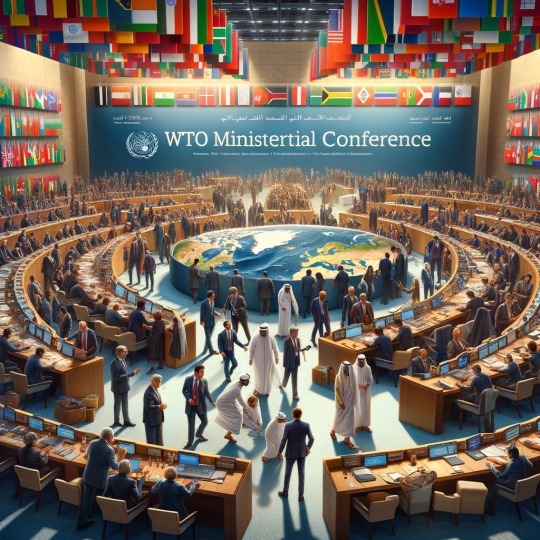
View On WordPress
#2024#agricultural policies#Common But Differentiated Responsibilities#developing nations&039; rights#distant water fishing#environmental sustainability#Exclusive Economic Zones#farm subsidies controversy#farmers&039; protests#fishing subsidies debate#food security#global economic satire#global trade battles#India&039;s trade stance#international negotiations#investment facilitation deadlock#marine resource management#multilateral trade agreements#South Africa and India collaboration#Special and Differential Treatment#sustainable fishing practices#trade and development#trade policy satire#UNCLOS#US dispute#WTO drama#WTO ministerial conference#WTO reforms
0 notes
Text

Groundwater Is Vital To Health Of Our Planet: A Call For Greater Protection
https://www.eurasiareview.com/08012024-groundwater-is-vital-to-health-of-our-planet-a-call-for-greater-protection/
0 notes